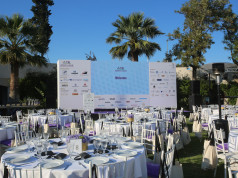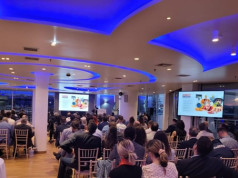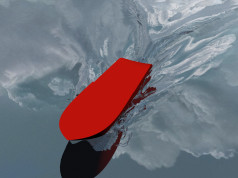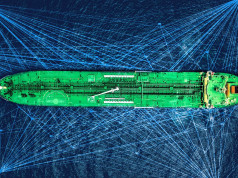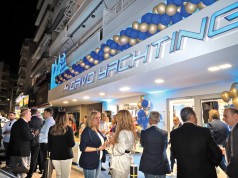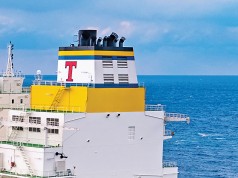The Maritime and Port Authority of Singapore (MPA), has established a Joint Industry Project (JIP) to investigate the operational feasibility of LNG bunkering in Singapore in collaboration with Det Norske Veritas (DNV) Clean Technology Centre and 21 industry partners.
The JIP, co-funded through MPA’s MINT fund, kicked off in January 2012 with the aim to provide recommendations to the Singapore government authorities on enabling LNG bunkering in Singapore, ensuring operational safety, alignment with industry expectations and best practice, and compliance with relevant international rules, regulations and standards.
The shipping industry is looking to LNG as a cleaner marine fuel to meet the international regulations as LNG has much lower emissions compared to the conventional marine diesel oil. Emissions from ships have come into the “environmental spotlight” and the industry is subject to progressively more stringent legislation, including global cap or fuel sulphur content, potential CO2 emission taxation, NOx emission controls and forthcoming regulations on Particulate Matters’ emission etc.
LNG fuelled propulsion has been demonstrated to meet the strictest environmental regulations and to be technically feasible. At present, there are 25 LNG fuelled ships all of which are operating in the Norwegian Emission Control Area and bunkering from shore facilities. Positive signals from the market also come from the number of LNG fuelled ships being designed and from the 24 LNG fuelled ships on order.
LNG bunkering is a process of refueling ships by transferring LNG fuel from the LNG carrying trucks, barges or onshore tanks. Switching from conventional marine fuel to LNG fuel provides both environmental and economic benefits to shipowners and public.
However, the most common key barriers to a more widespread adoption of LNG as a fuel for ships seem to be insufficient local LNG supply and immature bunkering infrastructure coupled with a lack of regulatory schemes for both shore-based and ship-to ship bunkering. The feasibility of LNG fuelled shipping also depends on the simultaneous development of the entire value chain; the lack of such concurrent evolution would be a major challenge and increase investment risk for each stakeholder.
The LNG bunkering JIP was conceived to address these feasibility issues and to reaffirm Singapore’s commitment towards maritime sustainable growth. As the world’s largest marine fuel bunkering port, it is strategically important to enable Singapore to offer LNG bunkering in the near future. “With the growing need to reduce the environmental impact of shipping and its related activities, Joint Industry Projects such as these allow us to evaluate the feasibility of alternative marine fuel sources. This is also in line with MPA’s commitment to clean and green shipping in Singapore. The results of this study will provide MPA and the maritime industry with the operational and technical information necessary to implement LNG bunkering in Singapore,” said Capt. M. Segar, MPA’s Group Director (Hub Port).
The JIP represents a platform where a consortium of industry players collaborates with each other to share knowledge on the topic and indentify and recommend solutions to the issues faced by the sector. This JIP is project managed by DNV and co-sponsored by the MPA, and 21 industry partners including BG Group, DNV Petroleum Services, Energy Markets Authority, Fearnleys, Gas Supply Pte Ltd, Hong Lam Marine, I.M Skaugen, IHI Corporation, Innovation Norway, Keppel Offshore & Marine Technology Centre, Land Transport Authority, Maritime and Port Authority, Mitsui & Co., Ltd., Norgas (Asia), NYK Line, Rolls Royce Marine, Shell, Singapore LNG Corporation Pte Ltd, SPT Marine Services Ltd. and Star Cruises.
The JIP Partners share their expertise, technical and market insights, rendering the JIP an informed and productive platform capable of identifying recommendations on the solutions addressing the specific needs of Singapore. Dr. Anthony Barker, General Manager for BG Singapore Gas Marketing and Chairman of the JIP steering committee says “This study provides an opportunity for established and experienced LNG industry players to work with Singapore bunkering stakeholders to ensure best in class safety standards and operating procedures are incorporated from the outset of this exciting development”.
“This JIP is a school book example on how industry and regulators can work closely together to accelerate the implementation of new technologies and industry solutions that one single player can not accelerate alone. The JIP is an excellent platform driving a safe and predictable scaling of regional LNG bunkering business solution. It is yet another important step in developing Singapore’s maritime cluster towards a Maritime Knowledge HUB”, says Bjorn Tore Markussen, Managing Director for DNV Clean Technology Centre.
Foto: Bjorn Tore Markussen, Managing Director for DNV Clean Technology Centre







